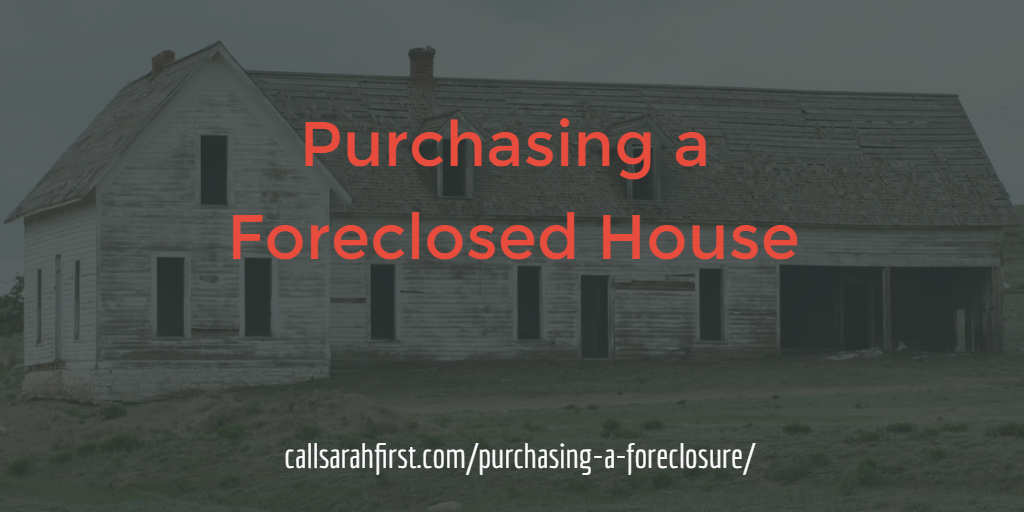Things to Know when Considering Purchasing a Foreclosed Home in MN
 Usually, it's the price that first attracts people to foreclosed properties.
Usually, it's the price that first attracts people to foreclosed properties.
Foreclosures typically sell for about 27% less than the fair market value of similar, non-distressed properties, according to an MIT study from 2011.
When more foreclosures are entering the system daily, lenders are motivated to price properties to sell quickly; however, ever-changing legal challenges and regulatory changes can stop or slow foreclosure sales and affect prices. When the market inventory is tight, foreclosures prices go up right along with traditional home sale prices.
Buyer Beware: Some lenders deliberately underprice their properties to elicit bidding wars. Research the likely value of the property in advance and decide if the actual market value is reasonable to you. If it is, make your offer at that value and stick to this number so you aren’t caught up in the drama of a bidding war and consequently overpay.
You are expected to move fast, but the lender probably will not. Allow a week or longer to move ahead with each step of the process. And don't be surprised if they get other offers to compete with yours while they are dragging their feet.
Because lenders are overwhelmed with foreclosures, offers pile up in their systems. It is common for them to consider several offers at a time for each property. Often, you will not know if your offer is one of many, or the only one, until you hear back that your offer was accepted, rejected or you have a chance to compete in a multiple offer situation.
The congestion in the foreclosure purchase system translates to lengthy delays. It is almost impossible to accurately predict when/if your offer might be accepted or when the purchase will close.
Bank delays and missed deadlines can cost you money if you must resend documents or postpone your closing. If you or your financing cause the delays, you may be required to pay a penalty. Be prepared with extra cash and patience.
Terms you should know:
Highest & Best - When a property has multiple offers, the listing agent will often send out a notice that each buyer's highest and best offer is due by a certain deadline. Your highest price and best terms should be well thought out and discussed with your agent.
Loss Mitigation Department - The department at the lending institution that handles short sales, foreclosures and lender-owned real estate.
Notice of Sale - The legal notice published by the lender announcing the impending foreclosure, including the legal description of the property and the date, time and place of the sale.
Owner Occupant - Many foreclosures are offered for sale to owner occupants, people who plan to reside in the home, before being offered to investors.
Pre-Foreclosure - A property that is headed to foreclosure but not currently for sale. The owner may pay/redeem the property and not sell at all.
REO - Real estate owned -- by the lender.
Sheriff Sale - The Sheriff's Office conducts the mortgage foreclosure sales as a statutory requirement in Minnesota. These are not auctions. The mortgage foreclosure sale starts the owner's redemption time. Redemption periods can be 6 months or even one year. The owner of the property still has many rights in place. We encourage you to seek legal counsel before attempting to bid at a foreclosure sale. You must have funds in the full amount owed at the time of the sale in the form of a bank cashier's check or cash.
Title Insurance - A policy that covers problems with the title – especially important when prior owners have been in financial distress. See these Title FAQs.
Property is Being Sold Subject to HUD Guidelines 24 CFR 206.125 - click to find out what this means
Have more questions? Just call me of course! :-)


